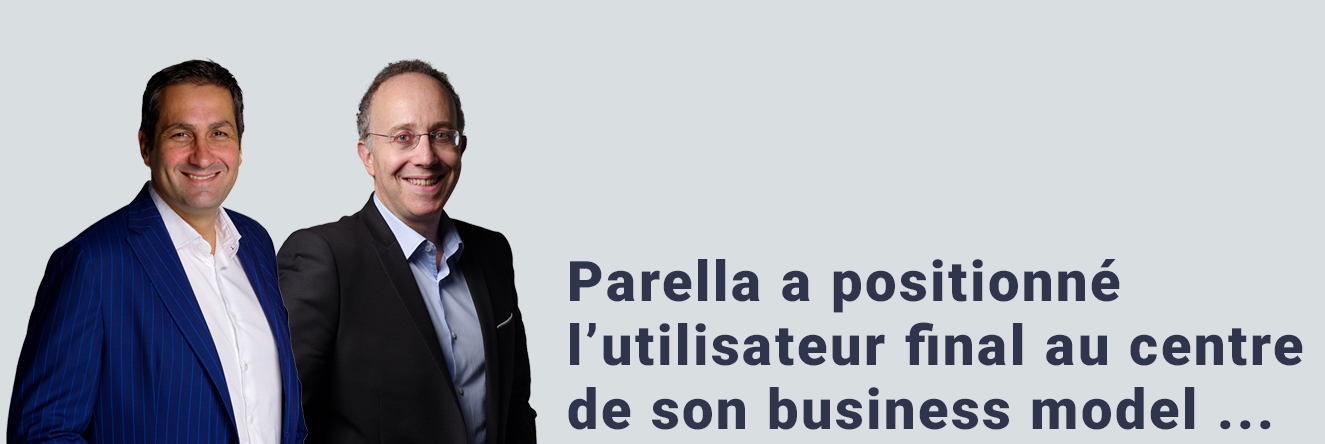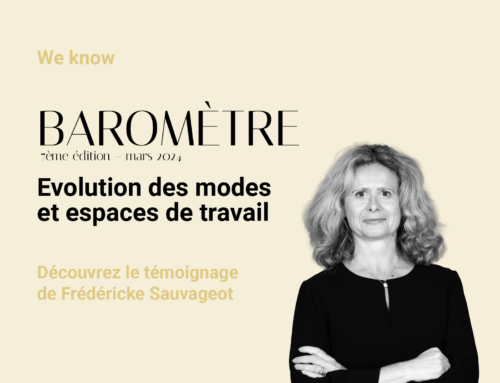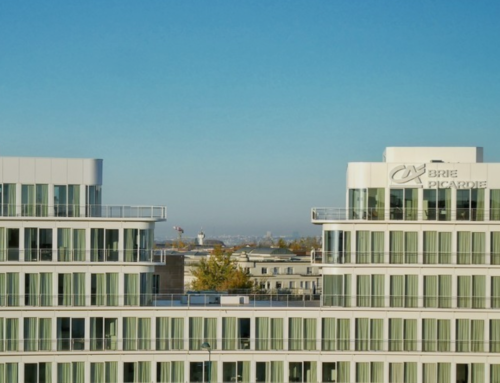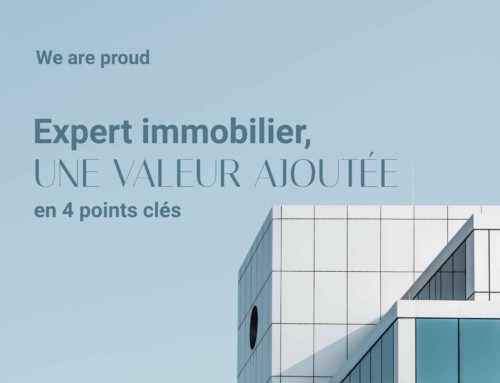"We are not subject to real estate market cycles".
Parella has placed the end-user at the heart of its business model. Through its three divisions - Real Estate Services, Workspace and People & Transformation - the 200-strong company intends to pursue its international expansion over the coming years. Michael Kaplan and Olivier Neuman, two of the company's partners, shed some light on the subject.

What is Parella's current position?
Michael Kaplan: First of all, we're celebrating our 15th anniversary this year, which is no mean feat. Since our creation, we have remained true to our credo: to advise only the end-user. This is what all our associates have in common. Even if we come from a variety of backgrounds (architect, broker, management consultant, ex-lawyer, etc.), what we have in common is that we have all worked for international brokers and have finally chosen our camp: that of the end-user.
This positioning enables us to address most corporate real estate issues without any conflict of interest. Today, 70% of our customers are tenants, while the remaining 30% are owner-users. Over the years, we have built up our expertise in three main areas.
Olivier Neuman: To provide real added value to a real estate project, we need to have a 360° vision, so that our multi-disciplinary teams can work together. This is our priority.
Could you explain these 3 "universes" to us?
Michael Kaplan: There's the Real Estate Services division, which covers not only real estate appraisal, but also real estate strategy and support for real estate research and transactions: leasing, lease renegotiation, sale, purchase of real estate assets, CPI, Vefa, Befa.
Olivier Neuman: In 2023, our real estate consulting division had its best year since our creation! In the Paris region, we are close to the 80,000 m² mark for our end-user customers.
While the macroeconomic context is not favorable...
Olivier Neuman: We're not subject to real estate market cycles. Whether they are growing or not, our customers are always faced with real estate choices and challenges: renegotiating a lease, relocating, reducing or increasing floor space, buying a site, selling it, upgrading technical equipment, adopting new ways of working... Parella provides solutions to a wide variety of issues.
Michael Kaplan: Our business is not subject to the dynamics of any particular real estate sub-market. Whether our customers are positioned in La Défense or central Paris, it makes no difference to our teams, who are not geographically sectorized and do not engage in rental marketing.
Rising interest rates, which have a major impact on investment volumes, do not affect us, as we do not engage in capital marketing. On the other hand, as Olivier says, our end-user customers always have issues to deal with: an approaching lease expiry date, changes in headcount that impact surface requirements upwards or downwards, discussions on the sharing of individual workstations, etc.
What are your customers' expectations today?
Olivier Neuman: Most of our customers are redefining their post-Covid real estate strategy to take account of the impact of teleworking. In particular, they're looking at the right mix of flex office options to implement, at ways to strengthen the collaboration and cohesion of their teams, at the impact of digital technology on the physical and digital workspace, and at their location and attractiveness...
Overall, they are therefore moving towards a reduction in floor space for the same number of employees. The creation of collaborative spaces is another strong trend. It's a case-by-case approach. We're very agile.
What are your other two "worlds"?
Michael Kaplan: There's the Workspace division, in which you'll find an interior design studio, a technical design office for all trades, which we've beefed up enormously in recent years, and a project management team for construction and interior design projects. This division is often involved in the continuity of a project in the real estate division, but also in stand-alone assignments. Mainly for offices, but increasingly for retail and hotel-restaurant projects.
We can act as project manager, as in the case of Total Energies' The Link tower in La Défense, or as prime contractor or general contractor for design & build, as in the case of Samsung's new headquarters in Saint-Ouen.
Michael Kaplan: The People & Transformation division is the last of our business units. It's made up of consultants from management consulting firms or from the transformation departments of major groups.
Against a backdrop of projects that are increasingly focused on people and teamwork, this team supports change, facilitates social dialogue and deploys original, high-impact communication tools. Listening, co-creation, communication, onboarding, gamification, training and coaching hold no secrets for them.
How much of your business comes from the Paris region?
Michael Kaplan: In France, we generate 70% of our business in the Île-de-France region and 30% in the rest of the country. The proportion of regional business is growing steadily. Internationally, some ten years ago we created Exis Global, a worldwide network of partners sharing the same 100% user-dedicated positioning.
Since 2019, with the support of our financial partner (the Qualium Investissement investment fund), we have bought out a number of our European partners. As a result, we now have our own offices in Madrid, Milan, Berlin, Luxembourg, the Netherlands, London and Brussels.
How does Publicis' leasehold interest in Gecina's Mondo illustrate your business model?
Olivier Neuman: Publicis' strategic thinking had already begun before we started working together. The company was planning to consolidate several sites, and was looking for a new building adapted to the deployment of new ways of working; a building that would be more central and more in line with its environmental strategy. We helped Publicis with a multi-dimensional analysis of different buildings, scenario modeling and negotiations. For Mondo, in the 17th arrondissement of Paris, we carried out spatial and technical analyses, studied the overall cost of the operation and negotiated all the rental conditions with Gecina. Today, we are continuing to work with Publicis on the Mondo development.
Mickael Kaplan: Publicis was looking for a consultancy that was both expert and objective, able to mobilize in a short space of time and implement its recommendations.
What are Parella's objectives for the coming years?
Mickael Kaplan: We want to continue our internationalization - which means strengthening our range of businesses in certain countries. We want to bring in new associates. We want to continue to grow while remaining agile, listening to our customers' expectations and challenges, because that's the key to our business.
© Business Immo for this article






